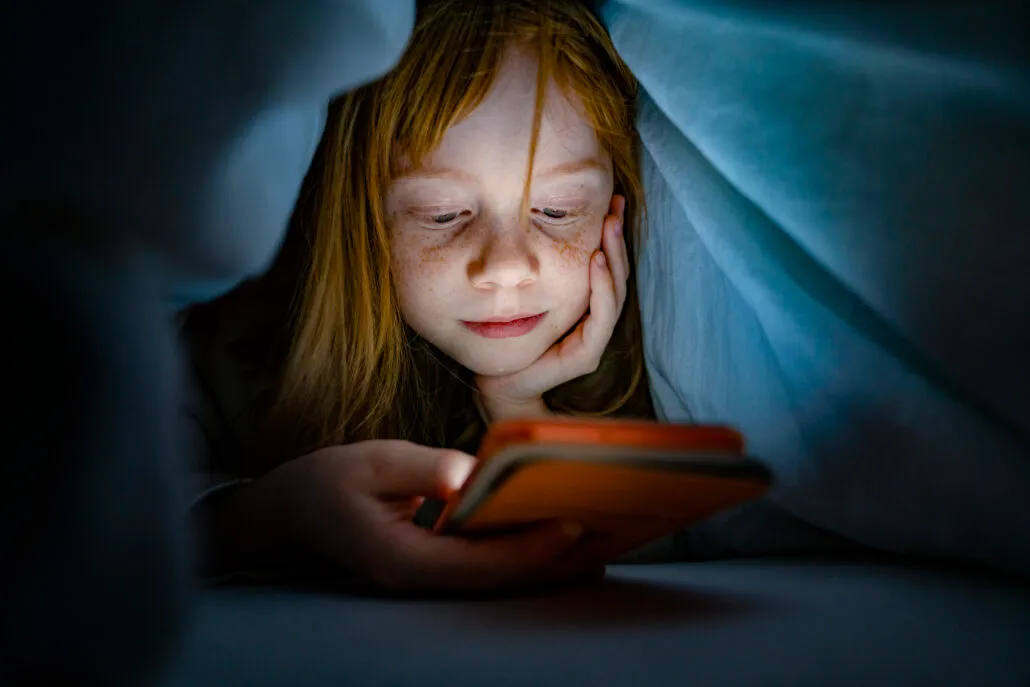How Does Social Media Affect Mental Health?

Social media is a part of the modern world. It is used by people all over the world as a medium of socializing, entertaining and even working. Nevertheless, along with social connectivity and ease of use, there is another side of social media that is not so healthy and that is the effect social media has on mental health. The endless stream of information, idolized images, and online interactions are capable of influencing the psychological condition in a significant manner. This paper will take a closer look at the impact of social media on mental health and how their detrimental impact can be reduced.
The Role of Social Media in Shaping Mental Health
Social media platforms are built to be as engaging as possible, and in most cases, they use algorithms, which promote content that users find engaging. Although this activity may be helpful in terms of developing a feeling of belonging and entertainment, it is also potentially dangerous to mental health. Whether it is the increase in stress levels or the aggravation of the anxiety and depression levels, social media directly and indirectly influences the way we view ourselves and others.
Social Media and Stress
Among the most short-term outcomes of the usage of social media, there is an increase in the number of people who are under stress. Non-stop notifications, the need to stay active on social media, and the excess of information can cause cognitive overload. When users are constantly aware of the need to keep up with trends, react to messages as soon as possible, and follow the posts, it is harder to disconnect, which leads to the accumulation of stress.
Additionally, the need to have an impeccable image on such social media platforms as Instagram or Facebook only contributes to this pressure. People are often exposed to idealistic images of life that may make them have unrealistic expectations of life, and when they fail to achieve them, they get stressed. Such a continuous comparison with other people may lead to emotional exhaustion, which is causing long-term stress and uneasiness.
Anxiety and the Digital World
Social media increases the phenomenon of social comparison. Studies indicate that the longer an individual is on such sites, the more they are likely to be involved with upward comparison when individuals compare themselves to others who they perceive to be doing better or more successful. Such a behavior usually results in anxiety about personal life, appearance or accomplishments.
When people scroll through their feeds, they see perfectly curated pictures and highlight reels that do not represent challenges, flaws, and day-to-day lives that all people live. This can induce feelings of inadequacy, insecurity, and anxiety. Individuals will start to think that they are not living as good as they see on the internet and this continued cycle will always have them anxious with their thinking.
Depression
There has been a lot of research on the relationship between social media use and depression. Researchers have indicated that spending too much time on sites such as Facebook, Twitter, and TikTok is associated with an elevated level of loneliness and depression. The habit of continuously using social media may lead to the illusion of connectedness because a person may feel alone even though they are digitally connected.
The lack of meaningful interaction on the web may give the user a feeling of loneliness which may add to the depressive symptoms. This validation which individuals desire via likes, comments, and shares is usually short lived and after the waves of attention have subsided, a sense of emptiness could be experienced. This may create a dangerous loop of people using social media more to find validation, which further isolates people and contributes to feelings of depression.
Sleep Disruption and Mental Fatigue
The other secret and yet an impactful way in which social media affects mental health is through sleep disturbances. Most of these people have a tendency of using their phones late at night when they scroll through social media until they fall asleep. This activity is usually coupled with blue light that disrupts the process of melatonin production which is the hormone that controls sleep. Consequently, sleep patterns are disturbed and one develops insomnia and generally poor sleep quality.
Sleep deprivation has been associated with many mental conditions such as stress, irritability, anxiety, and depression. The failure to rest leads to the worsening of an already existing mental health problem, which in turn leads to an increase in social media use and the resulting poor mental health.
Cyberbullying
Unfortunately, not all interactions on social media are positive. Another major challenge that has emerged is cyberbullying which is very common among the young people. The internet has enabled people to post negative and harming comments due to the anonymity it gives. Such kind of bullying can have devastating effects on the psychological status of the victim and can lead to low self-esteem, depression, and even suicidal ideas in a worst-case scenario.
The victims of cyber bullying are also not in a position to easily subvert the bullying since they carry their phones or computers everywhere they go. The online bullying victim may end up in an abusive cycle of being victimized because of psychological damage that could be debilitating. This not only negatively affects their psyche, but it can also affect their health in the long term.
Social Media Addiction
Social media addiction is another pressing concern. Some people spend too much time on social networks, which presents a pleasing short-term effect but has the long-term outcome of diminishing returns. This addiction is usually due to the release of the pleasure chemical in the brain called the dopamine which happens when the users receive likes, comments, and messages. This repetitive process can cause the user to feel obliged to go back to the social media even at the cost of their well-being.
Long-term, the social media addiction may lead to mental exhaustion and the feeling of being overworked by constant online participation. Individuals also start to forget about real life priorities, like work, sports, or interpersonal relationships, and this fact can contribute more to the stress and anxiety.
How to Manage Your Mental Health in the Digital World
Although there is no doubt of the effects of the social media on mental health, there are a couple of measures each person can undertake to ensure the effects of the media are minimized:
- Set Boundaries: To prevent overload it is also good to put some kind of limit on the time spent in the social media. Some of the tools that could help to manage online time are screen-time trackers, limits to the use of apps.
- Curate Your Feed: Follow accounts that motivate you to be happy, mindful of mental health, and be in touch with the true content. Avoid following accounts that set constantly unrealistic expectations or convey the negative messages.
- Take Realistic Steps: Work on activities that will help in bringing well-being, this can be by physically doing exercise, meditating, or even spending time with loved ones. It can assist in equalizing the amount of time spent on the Internet and create a more meaningful existence.
- Have Social Media Detox: It is important to take time off with social media to give the mind a chance to reset and take time to find oneself again. Such detoxes may last a few hours to a number of days, depending on the requirements of the individual.
- Seek Professional Help: If the negative effects of social media are causing significant distress, it may be helpful to seek the guidance of a mental health professional.
Conclusion
There are bad and good impacts of social media on mental health. Although it can present a platform to connect with, it is also associated with some risks such as stress, anxiety, depression, and sleep disturbances. Through awareness of the usage of social media, reasonable limits, as well as physical activities in the real world, one may be able to have a better balance between the online and offline life, thereby creating a better balance overall. It is important to note that social media can affect our mental health and we need to take the responsibility and protect our mental state.



